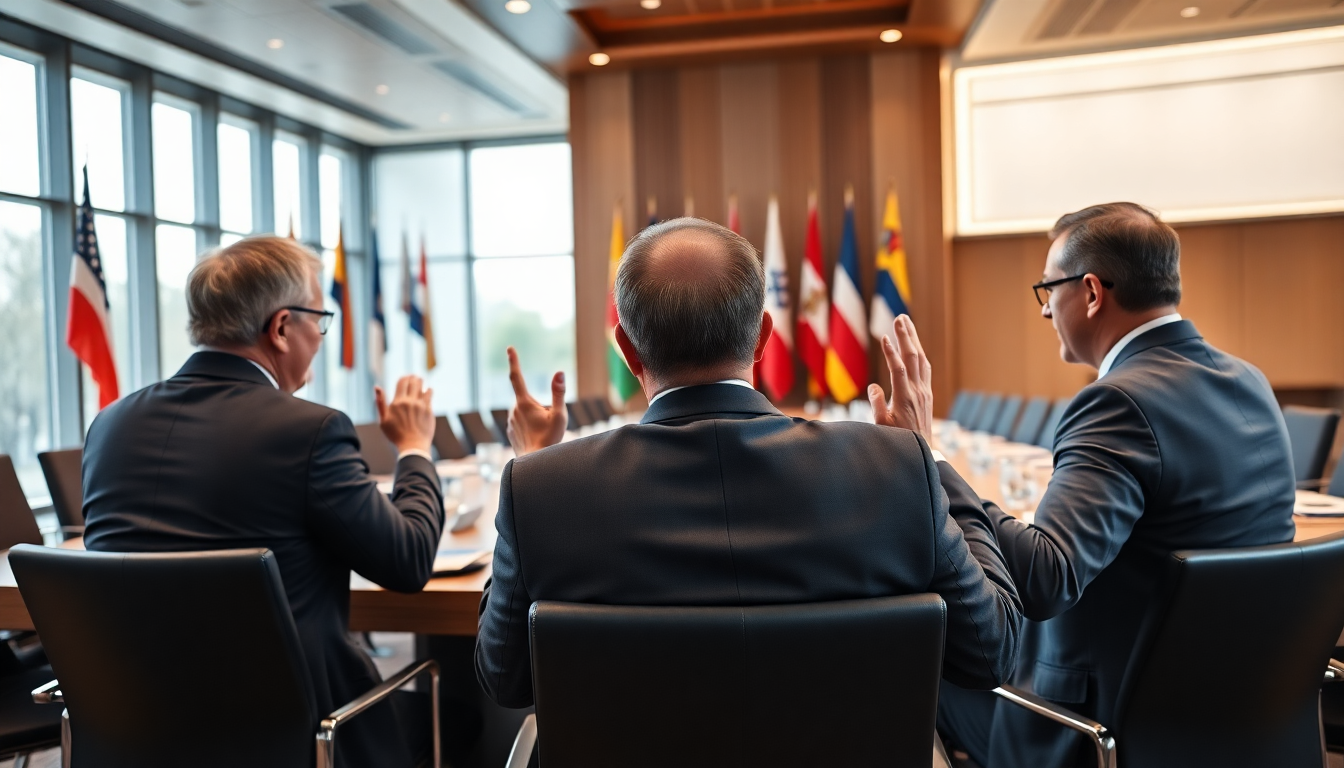Table of Contents
International diplomacy often feels like a world filled with protocol and formalities. But occasionally, we catch a glimpse of the lighter side, revealing the humanity behind the leaders. A recent incident involving NATO Secretary-General Mark Rutte and former President Donald Trump is a perfect example. When Rutte affectionately called Trump ‘Daddy’ during a NATO summit, it ignited a flurry of reactions and discussions, shining a light on the complex dynamics of leadership perceptions on the global stage. Isn’t it interesting how such moments can shape our understanding of international relations?
The context of the exchange
At a NATO summit in The Hague, Trump made headlines with his candid remarks about the Middle East, especially regarding Iran and Israel. In a playful moment, Rutte referred to him as ‘Daddy,’ a comment that quickly took off on social media. The White House even joined in on the fun, sharing a video of Trump’s return to the U.S. with a cheeky soundtrack, which only added to the public’s intrigue. These informal interactions can reveal a lot about the relationships between leaders and the sentiments that influence their international alliances.
Trump’s analogy comparing nations to ‘kids in a schoolyard’ captures the often chaotic nature of global politics. Just like children who may bicker but still remain friends, countries go through conflicts that can often be resolved through dialogue and diplomacy. This analogy really highlights the challenges leaders face as they navigate geopolitical tensions while trying to maintain camaraderie among allies.
Reactions and interpretations
Rutte’s ‘Daddy’ comment didn’t just elicit laughs; it sparked a range of interpretations. Some people viewed it as a humorous exchange, while others questioned whether such informal language was appropriate in serious diplomatic discussions. Rutte later clarified that his use of ‘Daddy’ wasn’t a direct jab at Trump but a reflection of how many allies look to the U.S. for reassurance during uncertain times.
His analogy likened this dynamic to a child seeking comfort from a parent, emphasizing the dependency some nations feel on the U.S. for support and guidance. It’s a fascinating illustration of the complexities of international alliances, where perceptions of strength and authority can heavily influence diplomatic relations.
The implications for international diplomacy
Grasping the nuances of exchanges like this is crucial for understanding the broader landscape of international diplomacy. Leaders often find themselves navigating a world of symbolism and language that can either strengthen or weaken alliances. Rutte’s informal remarks may have unintentionally opened up a conversation about the expectations and responsibilities that come with leadership on the global stage.
As countries tackle a range of challenges, the balance of humor and seriousness in diplomacy will continue to be a significant area of study. Moments like these remind us that while formalities are essential, the personal connections and understanding between leaders can play a vital role in collaboration and conflict resolution. Isn’t it intriguing how these seemingly small interactions can ripple through the world stage?
Looking ahead
In the ever-evolving landscape of international relations, the significance of effective communication and personal connection can’t be overstated. As leaders confront increasingly complex challenges, the language they use—whether formal or informal—will shape their legacies and influence the future of global diplomacy. Keeping an eye on these dynamics as they unfold will offer valuable insights into how leadership works in our interconnected world. Are you curious to see how these relationships evolve over time?


